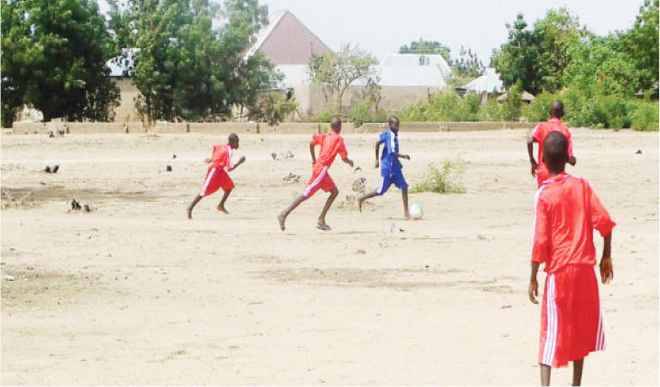The damage
It’s 11pm, the attack began, it was sudden. Armed men took the villagers unawares. Gunshots came from everywhere. A mother strapped her baby to her back, she wanted nothing else, except to flee, to save her baby. Other villagers went fleeing too.
The bullet struck her, she didn’t hear the thump of metal striking her flesh, didn’t notice when she fell dead.
Her baby was still strapped to her back, wailing in pain, unaware what happened. Her baby was Khadijah Yusuf (Not real name) . She was seven days old.
Another woman who was also fleeing saw Khadijah wailing, still strapped to her dead mother’s back. She picked the child and began a long, arduous race out of the village.
Khadijahs baby and her new foster mother wound up in Maiduguri, the capital of Borno State.
Counselors providing child protection services for thousands of people displaced and currently in Maiduguri came across her, said Kingdom Alexander, a child protection expert with Plan International Nigeria in the city.
Khadijah was formally listed in a fostering programme as the daughter of the woman who found her.
“Now, the child is close to one year and surviving,” says Alexander.
From 2009 till date, the uprising in Nigeria’s Northeast has escalated from insurgency to outright terrorism. The brunt of suffering has been on children. The dead are counted, the living are shells of themselves.
“This is a crisis of child protection,” said Geoffrey Ijumba, head of the United Nations Children’s Fund field office in Borno, which also oversees neighbouring Adamawa and Yobe states.
“The insurgency has disrupted the protective environment of children. The protection and safety children feel at home, in school, living in normal community-the insurgency has flipped that over,” he said.
In May this year, the United Nations Secretary-General on children and armed conflicts reported to the Security Council six “grave violations” against children in conflicts from Yemen and Syria to Chad and Nigeria.

 Join Daily Trust WhatsApp Community For Quick Access To News and Happenings Around You.
Join Daily Trust WhatsApp Community For Quick Access To News and Happenings Around You.


